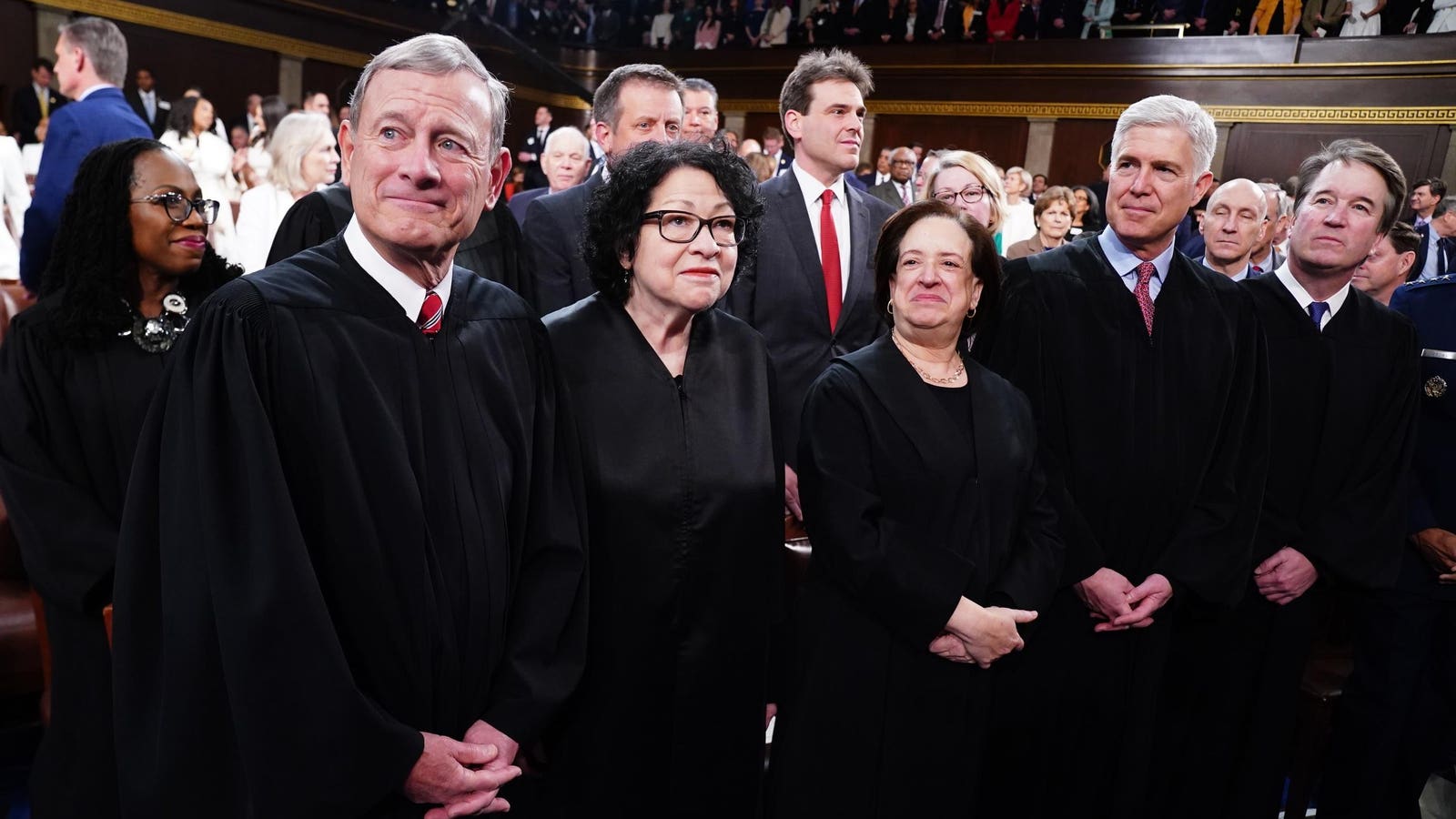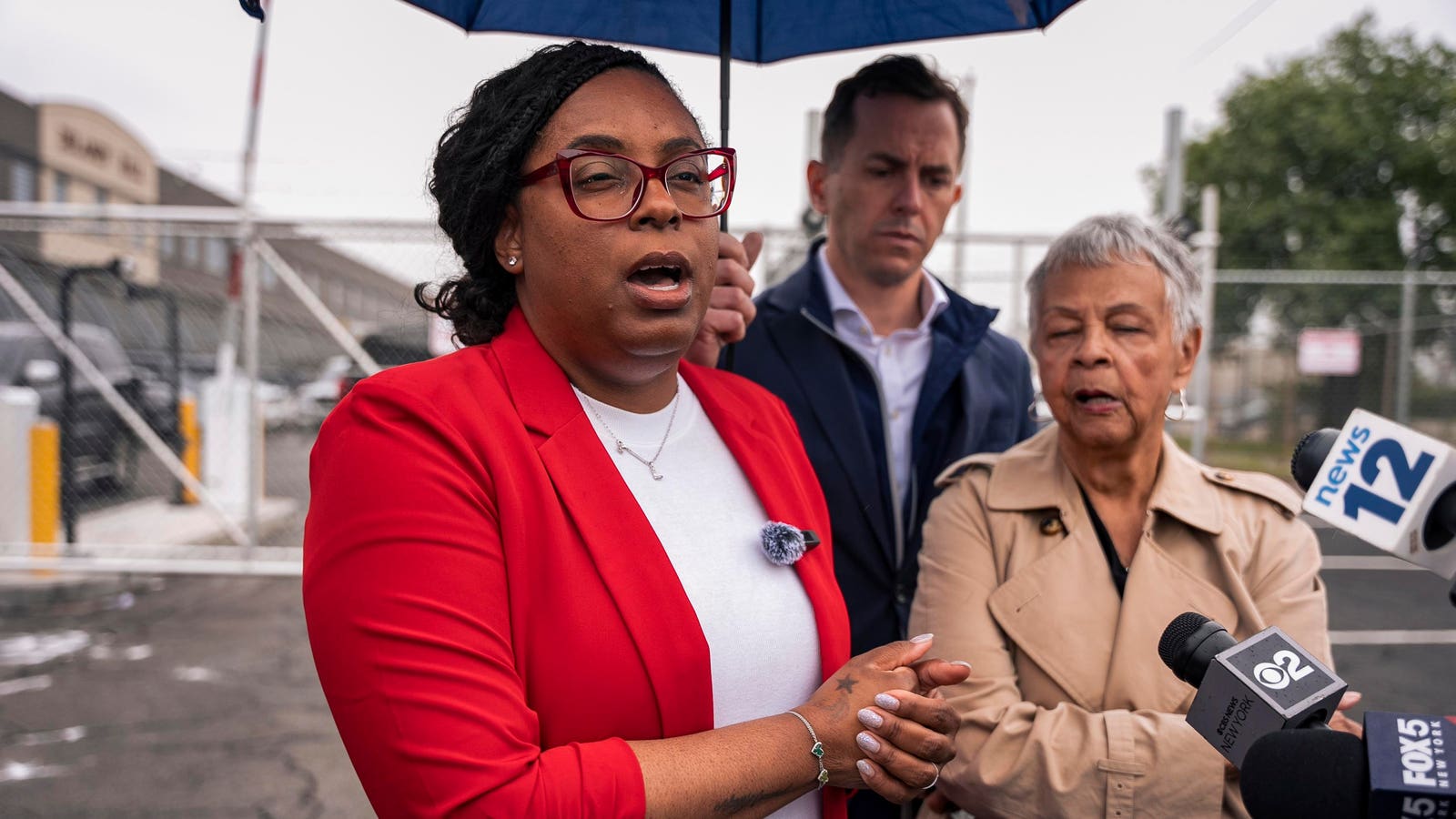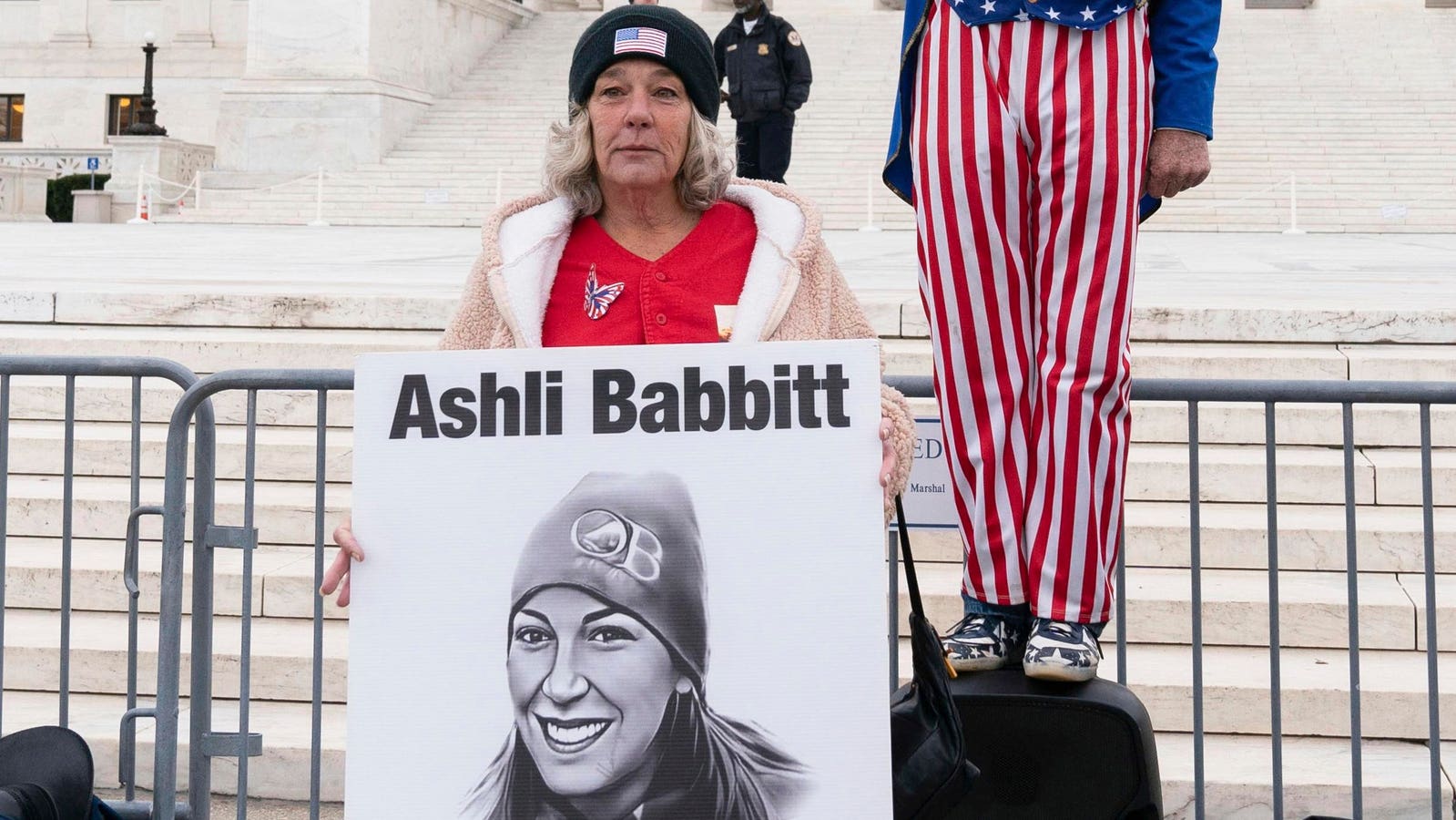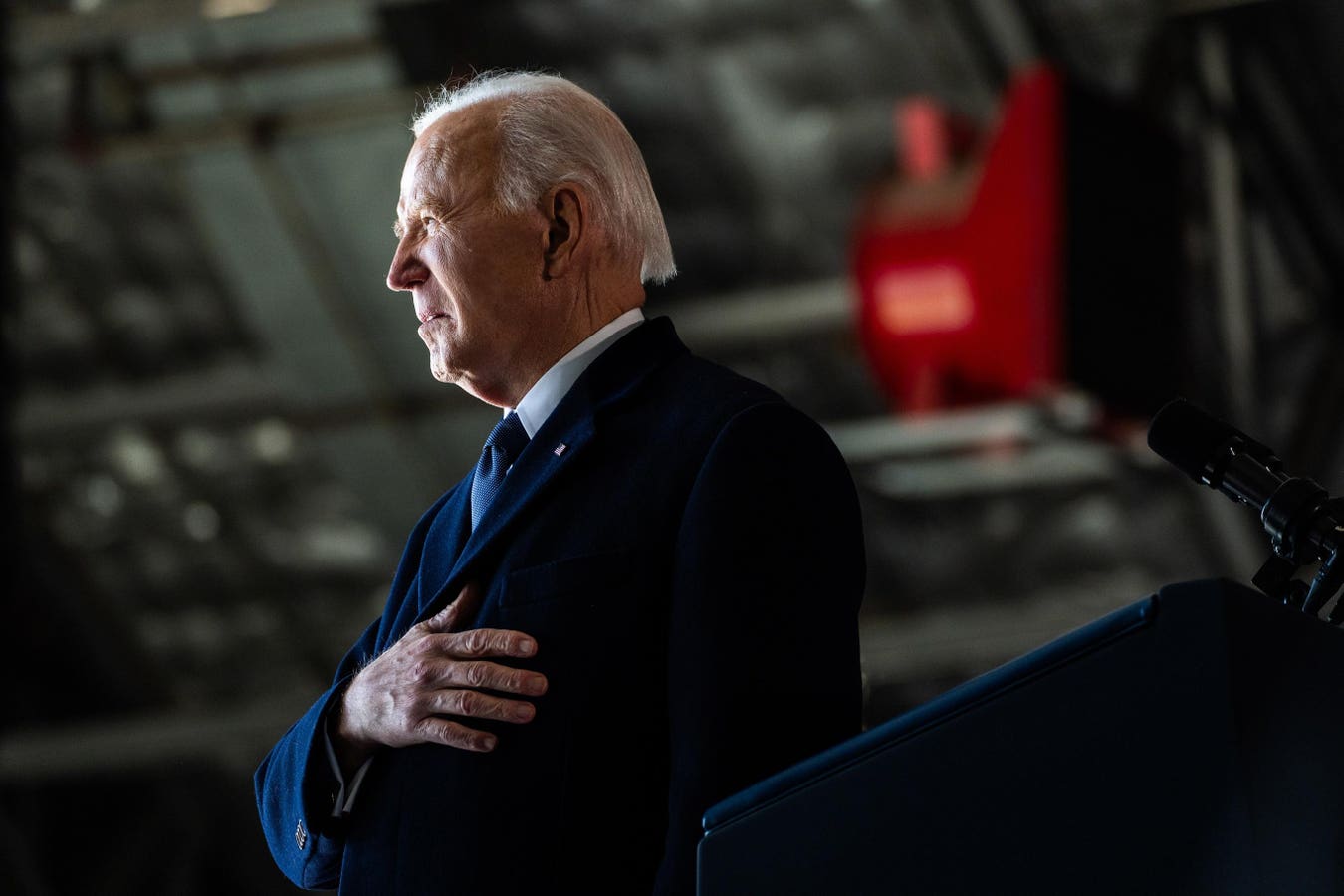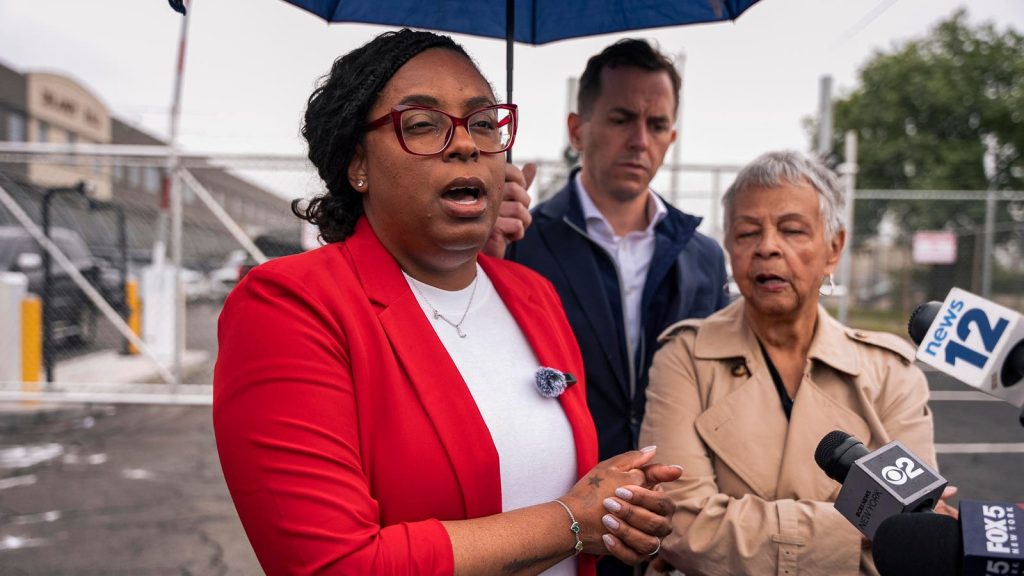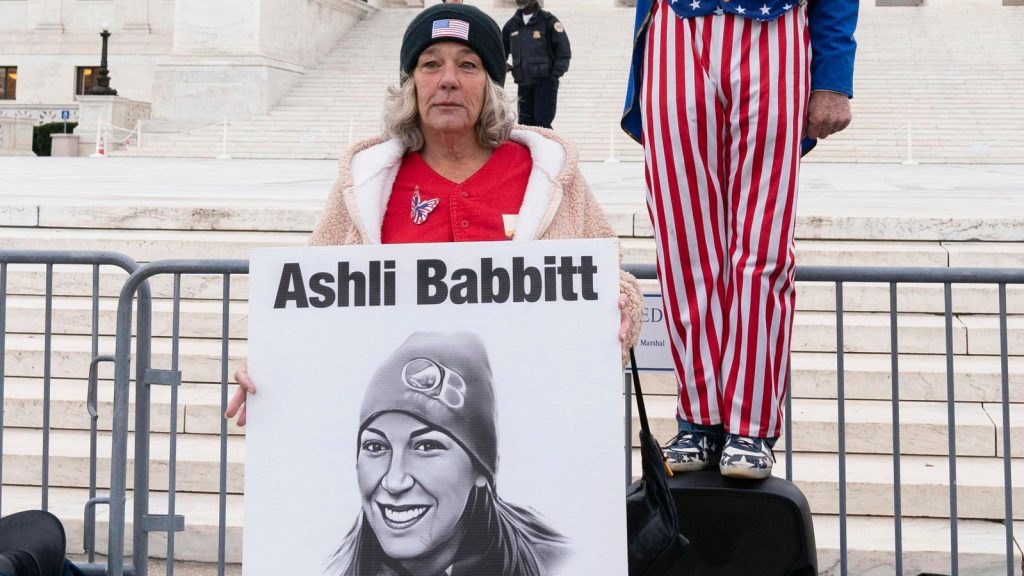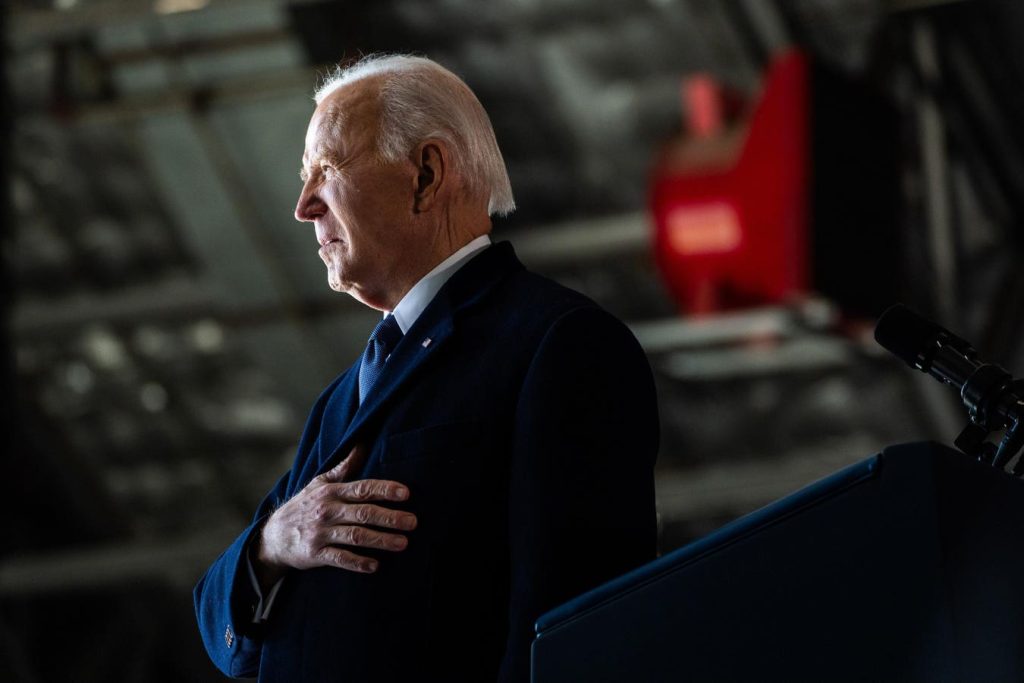Topline
The Supreme Court declined Monday to take up a copyright dispute case because it lacked a quorum after five justices had to recuse themselves, a move that was cheered by ethics watchdogs as the high court has repeatedly come under scrutiny for alleged ethics issues.
Supreme Court Chief Justice John Roberts (L) and Associate Justices (L-R) Sonia Sotomayor, Elena … More Kagan, Neil Gorsuch and Brett Kavanaugh stand ahead of President Joe Biden’s State of the Union address on March 7, 2024 in Washington, DC.
Key Facts
The Supreme Court said Monday it would not take up the case Ralph W. Baker, Jr. v. Ta-Nehisi Coates et al, a copyright dispute in which Baker alleged Coates’ book “The Water Dancer” plagiarized Baker’s book “Shock Exchange: How Inner-City Kids From Brooklyn Predicted the Great Recession and the Pain Ahead.”
The court said it lacked a quorum to hear the case, after five of the court’s nine justices—Justices Samuel Alito, Amy Coney Barrett, Neil Gorsuch, Ketanji Brown Jackson and Sonia Sotomayor—all recused themselves.
The justices did not give a reason for why they were recusing and the court has not responded to a request for comment, but Barrett, Gorsuch, Jackson and Sotomayor all published books through Penguin Random House, whose parent company Bertelsmann was named as a party in the case.
It’s unclear why Alito recused himself from the case, though judicial ethics watchdog Fix the Court speculates it’s possible he could have purchased stock in one of the other parties named in the case, such as Apple, Warner Bros. or Disney, or Amazon, which owns MGM Studios, a party in the suit.
The justices who didn’t have ethical conflicts determined the case “cannot be heard” as a result of the lack of a quorum, meaning a lower court ruling against Baker will stand.
Crucial Quote
“Fix the Court has for many years said that the justices should recuse from petitions involving companies — i.e., their publishers — that pay them thousands if not millions of dollars nearly every year in advances, royalties or both,” Fix the Court said in a statement Monday about the recusals. “And now they’ve finally done it.”
Surprising Fact
Monday’s recusals are only the third time that justices have recused themselves from cases since the court adopted a new—non-binding—code of ethics in November 2023. Barrett recused from a case involving a childhood friend, and Gorsuch stepped down from hearing a case this term that stands to benefit billionaire Philip Anschutz, his friend and former client. The court’s code of ethics directs justices to recuse themselves from such cases, but doesn’t impose any penalties if they don’t.
Key Background
The 6-3 conservative Supreme Court has faced increasing criticism in recent years over ethics concerns, as Democrats and ethics experts have protested numerous reports uncovering potential conflicts of interests. Alito and Justice Clarence Thomas have faced the most allegations, as Thomas’ wife’s right-wing activism and the justice’s lucrative friendship with oil magnate Harlan Crow have drawn widespread scrutiny. Alito also faced calls to recuse himself from cases involving the 2020 election and Jan. 6 riot, after reports surfaced showing flags associated with the “Stop the Steal” movement flying outside his homes. Both justices have denied any wrongdoing or ethical conflicts. While the justices adopted a new, non-binding ethics code in 2023 in response to the criticism, Democrats’ efforts to impose stricter controls on the justices have so far fallen flat. Republicans’ opposition to any efforts to rein in the court have killed the hopes of any ethics legislation making it through Congress, and while justices have publicly said in the past that the court was considering a code of ethics, it has not taken any steps past the voluntary code imposed in 2023.
Further Reading
ForbesSupreme Court Ethics Controversies: All The Scandals That Led Biden To Endorse Code Of ConductBy Alison Durkee
ForbesSupreme Court Enacts First-Ever Ethics Code — Here’s What Experts Think Should Happen NextBy Alison Durkee

